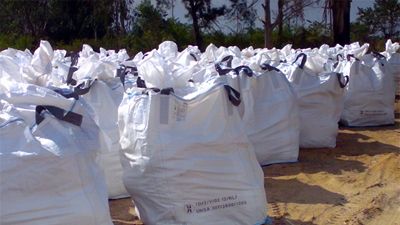On June 13, 2014, the World Bank approved a US$ 8.10 million grant from the Global Environment Facility (GEF)* for Egypt’s “Sustainable Persistent Organic Pollutants Management Project (POPs)” to demonstrate the improved management and disposal of targeted POPs stockpiles and Polychlorinated Biphenyl (PCBs) in an environmentally sound and cost-effective manner. Alaa Sarhan, the project team leader explains in detail the project objectives, environmental benefits and more.
What are the Persistent Organic Pollutants (POPs)? What kind of hazards might they cause?
POPs are some of the most dangerous pollutants for human health. They could cause adverse health effects such as birth defects, damage to immune and respiratory systems, etc. Moreover, they are environmentally persistent and resist breakdown by natural processes. They exponentially bio-accumulate up the food chain and are semi-volatile, which enables them to travel great distances.
The Government of Egypt (GoE) requested World Bank assistance to prepare a Global Environment Facility project. Why? What is the Government’s contribution?
Recognizing the importance of the issue, Egypt has identified the urgent need for implementing environmentally sound management of POPs pesticides and PCB oils used in electric transformers according to international best practices. Subsequently, the Government has requested assistance to prepare a project that focuses on the safe management and disposal of POPs material in Egypt.
It is highly likely that the project outputs and outcomes will continue beyond the life of the project as the GoE has already taken a number of steps including: signing on to the Stockholm Convention for POPs; submission of the National Implementation Plan and a recent start to its updating; establishment of a high-level project steering committee; and expression of commitment and agreement to provide US$15.5 million as co-financing towards the project cost.
How could such projects help address and solve the problem in Egypt?
The project is considered a substantial but first step towards elimination of POPs in Egypt and building capacity which will allow Egypt to continue the program after its completion. The project design builds capacity for the long-term management of POPs, with a “learning by doing” approach through a number of early action, demonstration investment activities for disposal of POPs. The focus will be on developing capacity to manage obsolete stockpiles on an urgent basis and to implement a systematic process for sustainable management practices.
What is the current situation in Egypt regarding POPs?
In Egypt, POPs are usually stored in populated areas, presenting an immediate threat to the health of people and livestock. Massive dumping is the result of two factors: the absence of storage and disposal sites in Egypt, and the high cost of export to proper disposal facilities.
* The Global Environment Facility (GEF) was established in October 1991 as a $1 billion pilot program in the World Bank to assist in the protection of the global environment and to promote environmental sustainable development.

